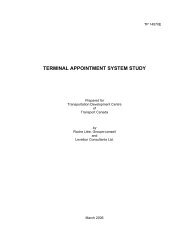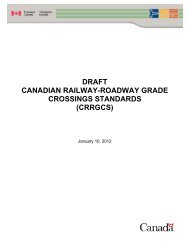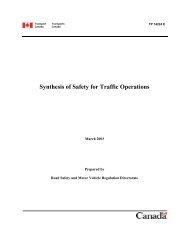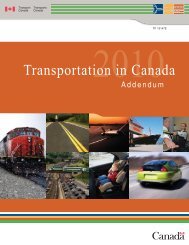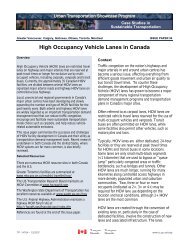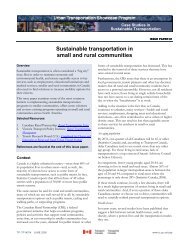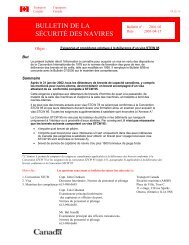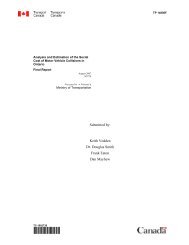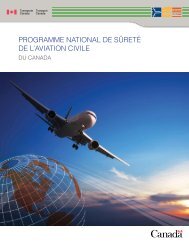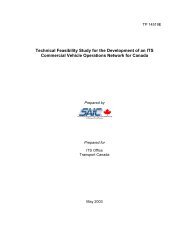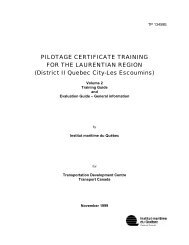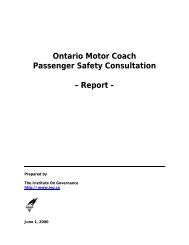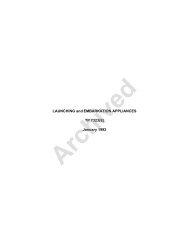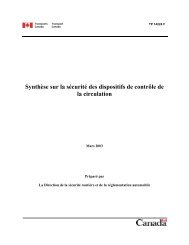APPROVED CHECK DISPATCHER MANUAL - Transport Canada
APPROVED CHECK DISPATCHER MANUAL - Transport Canada
APPROVED CHECK DISPATCHER MANUAL - Transport Canada
You also want an ePaper? Increase the reach of your titles
YUMPU automatically turns print PDFs into web optimized ePapers that Google loves.
TP 14114 <strong>APPROVED</strong> <strong>CHECK</strong> <strong>DISPATCHER</strong> <strong>MANUAL</strong><br />
(f) during flight planning, the dispatcher is able to recognize and take corrective action when<br />
a RNAV/RVSM routing is selected that does not satisfy the aircraft’s equipment;<br />
(g) the dispatcher demonstrates the ability to apply MEL operational restrictions;<br />
(h) the dispatcher checks the accuracy of entered data;<br />
(i) the dispatcher demonstrates knowledge of his responsibilities within the SMS, including<br />
safety reporting requirements and emergency response plan responsibilities.<br />
10.5.7 Additional items to be checked by an ACd or observed during a monitor include, but are<br />
not limited to:<br />
(a) Ensuring all flights have been authorized by a flight dispatcher;<br />
(b) Monitoring flight releases to make sure the time and date specified is consistent with the<br />
operational flight plan;<br />
(c) Awareness of ATC requirements during an emergency;<br />
(d) demonstrating satisfactory knowledge of RnAV/RVSM procedures. ACds must<br />
ensure dispatcher familiarity with the operation of these systems appropriate to the<br />
areas of operation.<br />
10.6 ABNORMAL PROCEDURES<br />
10.6.1 ACds should be very aware of potential problems when simulating abnormal conditions. The<br />
emergency categories or incident procedures must be outlined in the air operator’s operations<br />
manual. The dispatcher’s ability to manage abnormal operations is paramount. Items to be<br />
monitored and inspected are (not limited to):<br />
(a) Verify the flight dispatcher’s ability to react to emergency or abnormal operations, including<br />
activation of the emergency response plan and/or notification of responsible personnel;<br />
(b) Knowledge of information required by government agencies during an abnormal procedure<br />
or incident (e.g. documents or authorization to be obtained to operate an aircraft with one<br />
engine inoperative, etc.);<br />
(c) Knowledge of standard procedures and documents required for investigation of<br />
emergencies or accidents (e.g. information that a flight dispatcher should ascertain if an<br />
unlawful threat is received (male/female, any accent, young or old voice, etc);<br />
Some common errors that may affect the assessment briefings and briefing documentation are:<br />
(a) dispatcher’s lack of knowledge regarding alarm procedure (unable to locate or use the<br />
alarm procedures outline by the air operator);<br />
(b) Slow or passive reaction to an emergency situation;<br />
(c) Poor communication skills during an abnormal operation.<br />
Page 42 2 nd Edition - november 2011



